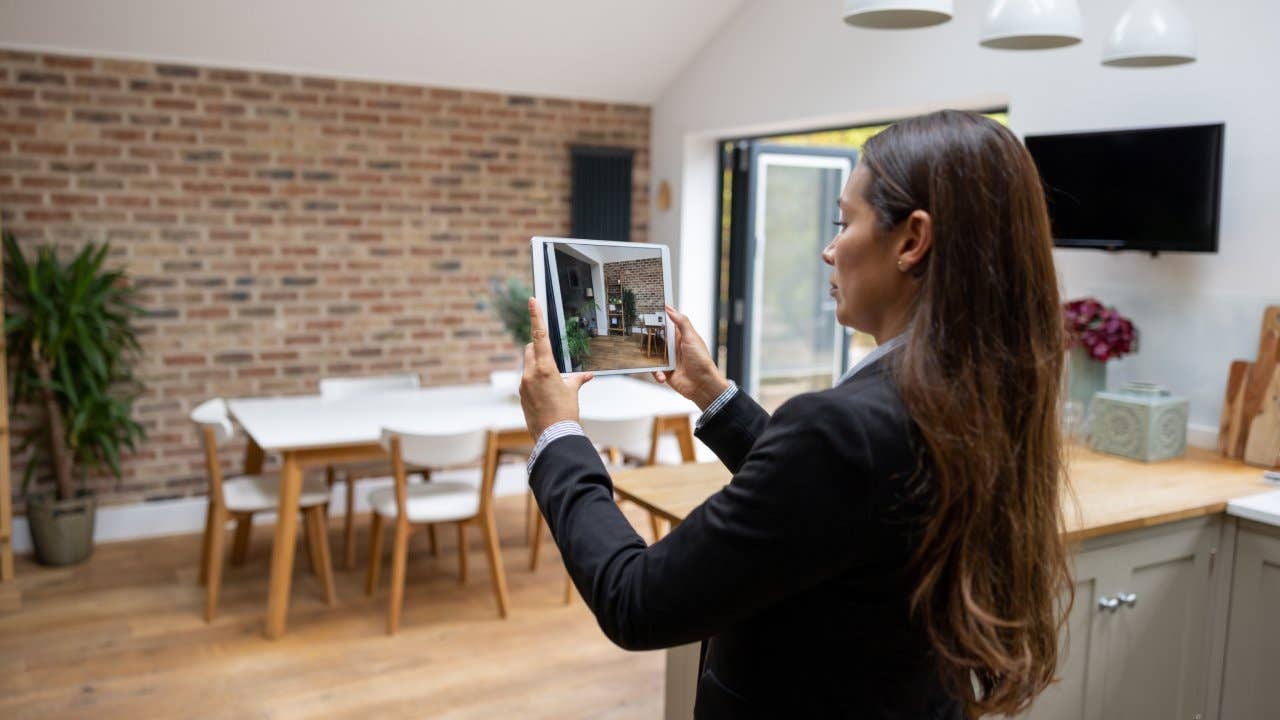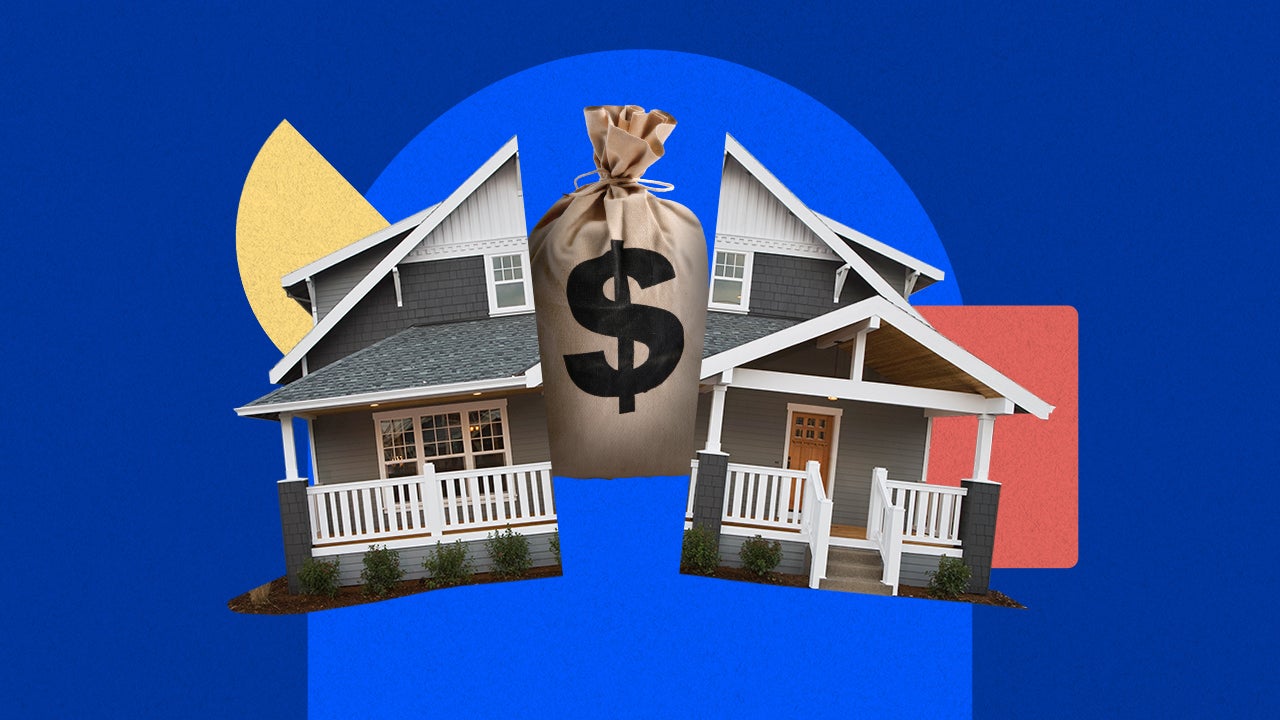Should you buy a house sight unseen?

It may seem crazy to buy a home that you’ve never seen. But during the pandemic years the practice exploded. According to Redfin, a whopping 63 percent of homeowners in 2020 made an offer on a home sight unseen. Of course, that was the height of the pandemic, when people often were dying to move but unable to interact. Today, while quarantines have been lifted and in-person activities have returned, the remote-buying genie is out of the bottle — and purchasing a home without setting foot in the place is still happening.
Here’s everything you need to know about buying a house sight unseen, what it involves, and whether it’s a good idea.
How to buy a home sight unseen
Today, 95 percent of all home buyers use the internet to search for homes, according to the National Association of Realtors “2022 Home Buyers and Sellers Generational Trends Report.” Buying a house sight unseen takes that a step further by completing the entire home buying process — from initial search to making an offer to closing — remotely.
It helps that listings are more sophisticated than ever before. Most major real estate websites have incorporated features like video walk-throughs, drone photography and 3D modeling to give buyers a feel for a property before they set foot on it. Some platforms take it a step further by allowing prospective buyers to schedule live video-chat tours the real estate agent through their app. Some, like Opendoor in certain markets, specialize in “self-guided tours” for virtual buyers — giving them an exclusive, advance heads-up on properties before they are listed for everyone.
Since your virtual viewing isn’t a preview, but the only sight you’ll see, though, a live video tour is essential whenever considering buying a home sight unseen. The seller’s agent may offer to do a video walkthrough for you, but they’ll make sure to show the property in the best possible way. For a more candid look, use your own real estate agent to walk through the property, showing every nook and cranny.
Try to have a friend or relative who knows you well tour the home for you, too. Along with potential problems, they may notice features or aspects that they know you will dislike or find unfeasible.
Like what you see? You can sign and send your offer letter, and any back-up financials, via email. And if the seller accepts, you can also sign the purchase and sale agreement digitally.
Closing on a sight unseen home
You can send your earnest money deposit to the title company through a wire transfer or money transfer service like Zelle. It’s essential to be aware of escrow fraud and ensure that you’re protected whenever you send money digitally and communicate with people you’ve never met in person. Always double-check routing and account numbers and verify any information directly with the source.
Home inspections and appraisals are done in person, but you don’t need to be present personally for them. While you don’t pick your appraiser — the lender does that — it’s vital that you pick the best home inspector possible to check everything on the house and give a detailed report since you can’t see it for yourself.
The actual closing process of signing documents can be done entirely online in 41 states so far, an advancement made possible during the pandemic. However, while state laws may allow it, and many sellers are up for it, many lenders still want a closing to be done fully or partially in-person. If a digital closing isn’t possible for you, or you prefer physical documents to sign, you can use the services of a remote notary who comes to your current location to witness your closing.
Tips for buying a home sight unseen
Unfortunately, buying a home sight unseen “increases the risk of an unfavorable outcome for the buyer,” says Alex Capozzolo, Co-founder of Brotherly Love Real Estate in Philadelphia.There are ways to mitigate the risks, however.
When, buying a home sight unseen, do:
- Pick a local real agent who has sold homes sight unseen/dealt with long-distance buyers before
- Ask for a live 3D walkthrough of the home at different times of day
- Get a visual tour of the neighborhood and surrounding area, too
- Get your agent or a friend to do the final walk-through pre-closing
When buying a home sight unseen, don’t:
- Be shy about asking people doing the tour to open doors, flush toilets, etc.
- Waive contingencies like selling your old home before closing
- Skip the home inspection
- Skip additional recommended inspections like for asbestos or radon
Should you buy a house sight unseen?
Buying a home sight unseen is risky, even with all the high-tech, digital toys at your disposal. Things like natural lighting, textures, smells, room size and neighborhood sounds are hard if not impossible to get a feel for virtually. In fact, it’s hard to get a feel at all.
There’s no reason to buy a house sight unseen if you live in the area, or can easily visit. Most sight unseen buyers are out-of-state (or even out-of-country) — and they often are operating under a tight timeframe. Or they’re flippers. “Investors who are looking for a good deal on a fixer-upper or those who are relocating for work and don’t have time to physically view properties may be well suited to buying a property sight unseen,” says Shaun Martin, owner, and CEO of the Home Buying Company in Denver.
Buying foreclosed homes
You may have to purchase unseen if you’re trying to buy a foreclosed house, like a HUD home, at auction. While HUD homes can allow a home inspection, you may not have the opportunity to view the property before it comes under the gavel.
Even if you could visit, most foreclosures sold at auction are sold in as-is condition and may be even auctioned while still occupied, not allowing you to tour the property before you place your bid. This means that you could end up with “significant hidden damage or problems that need to be addressed,” says Martin.
“If you can’t afford the risk, consider auctions that may allow you to view the property before bidding,” adds Capozzolo.
Final word on buying a home sight unseen
In some ways, putting in an offer on a home sight unseen doesn’t differ much from a home you’ve toured in person. But “you must have the home professionally inspected and consult closely with your real estate agent during the entire transaction,” says Capozzolo.
You might get a bargain; your speed and commitment might even impress the seller, making your bid the winning one. But while you’re moving fast, don’t skip certain vital steps. This is one situation where you do not want to waive any contingencies in your offer or in the real estate contract. To some extent, buying a home sight unseen is a leap of faith, so do everything you can to avoid a crash landing.
Why we ask for feedback Your feedback helps us improve our content and services. It takes less than a minute to complete.
Your responses are anonymous and will only be used for improving our website.






